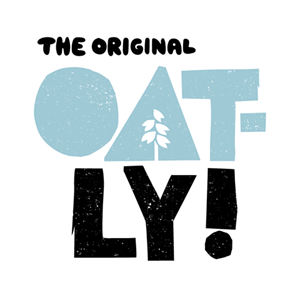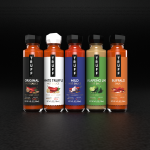PLANT Act Enters Farm Bill Conversation

How does the government create a research-driven, farmer-centric plant-based food industry ecosystem that supports its own growth through consistent supply and demand? That’s the task the The Peas, Legumes, and Nuts Today (PLANT) Act is looking to tackle.
Introduced to Congress late last week by House Rep. James McGovern (D-MA), the 28-page bill outlines a “blueprint” to advance the U.S. Department of Agriculture (USDA)’s efforts to connect rural and small farmers with new market opportunities, create more farming and agricultural jobs and expand options for consumers at the grocery store. Representatives have positioned the bill as a provision to the upcoming Farm Bill reauthorization and have already secured support from across the food industry.
“The PLANT Act will help us win the future of food,” said McGovern, in a press release. “Plant-based foods are already creating new opportunities… and this legislation will be a game-changer. By putting farmers and their communities front and center as we grow the greatest plant-based sector in the world, we can create countless good jobs while showing the world what makes American agriculture so strong.”
Allowing farmers and companies involved in the plant-based food supply chain to apply to new and existing USDA incentive and loan programs is one of the bill’s main objectives. It would also usher in the creation of a Plant Protein Innovation Initiative to provide technical and financial assistance for regionally-diverse plant-based food production in order to prioritize support for rural farmers and small food processors.
“The PLANT Act’s introduction marks a significant milestone for our industry, promising to revolutionize the landscape of plant-based foods and open up new opportunities for growth and innovation,” said Sadrah Schadel, co-founder and CEO of No Evil Foods. “The introduction of this bill is an incredible outcome resulting from the collaborative action of many engaged and aligned groups from our representatives in Congress to the Policy team at the [Plant Based Food Association], the Environmental Working Group, and the many forward-thinking companies, like No Evil Foods, who signed onto the bill to show their support.”
If passed, the PLANT Act will strengthen domestic supply chains for plant-based food ingredients – with a heightened focus on crops such as mushrooms and pulses. According to supporting documents for the bill, the plant-based industry currently employs more than 55,000 people, but those backing it believe with these new investments, the industry could bring over 200,000 new jobs to the U.S. food and agriculture industry.
But beyond supporting agriculture’s role, the PLANT Act also hopes it can secure government funds to further plant-based protein research under the USDA’s high-priority research and extension initiatives. The plant-based food industry has long argued that it can only compete with the industrialized meat and dairy sectors with support from the U.S. government through similar means, such as ingredient and manufacturing subsidies. PLANT Act supporters have cited the significant international investments from governments including China, Canada, Israel, Denmark, the Netherlands, Qatar, Australia, and the UK. While the Act itself does not specifically outline a novel subsidy structure, the ecosystem it aims to create could point the government and industry together, in the right direction.
“Since Oatly entered the U.S. in 2017, oatmilk has grown from a coffee shop novelty to a regular grocery list staple,” said Sara Fletcher, Oatly NA communications and public affairs director. “Over the years, we’ve partnered with U.S. farmers who want to take advantage of the growing oatmilk category by producing U.S. oats but constantly run up against barriers like infrastructure and processing. That’s why we’re so supportive of the PLANT Act, which is a huge step toward making sure U.S. farmers can truly benefit from the growing plant-based foods movement, giving U.S. consumers easier access to the delicious plant-based foods they want, and allowing companies like Oatly to compete, succeed and lead in the U.S.”



















